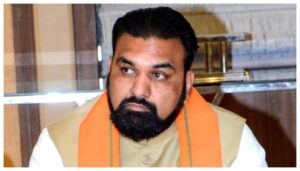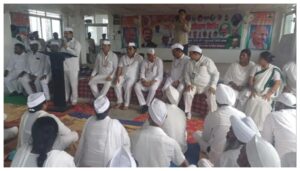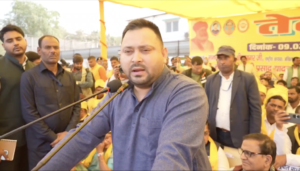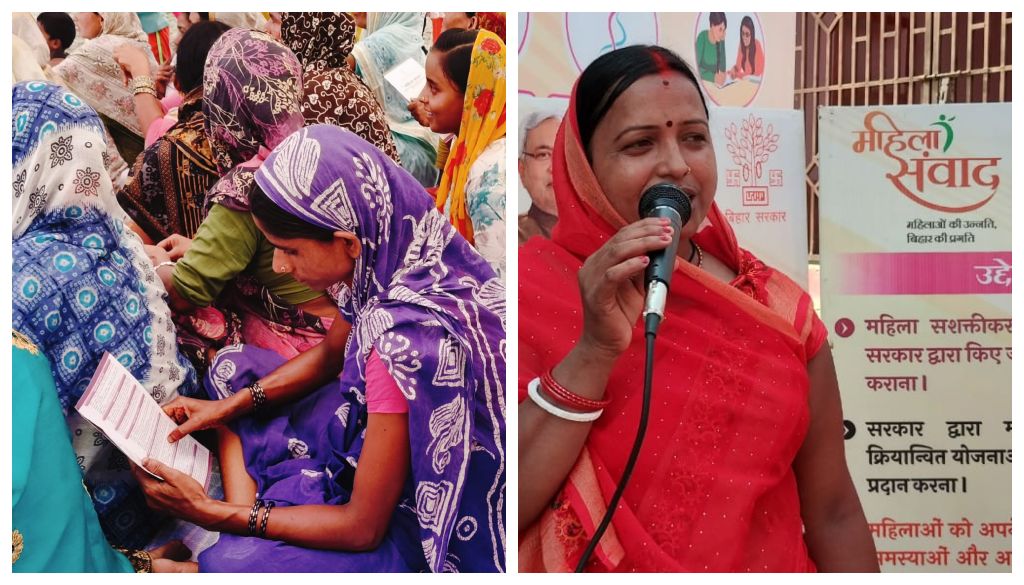
Patna: “We all grow makhana in our village. If we had a processing unit here, our youth would not have to leave for work elsewhere,” said Shashi Devi from Bihra village in Saharsa district, during a Mahila Samvad session on Monday.
Shashi’s point is one of many practical suggestions being shared across the state as part of Mahila Samvad, a state-wide campaign that is giving women a platform to raise issues, suggest ideas and participate in local development conversations. For Shashi, it is about creating jobs nearby so that young people do not have to migrate. For others, it is about getting basic services like water, roads or a school closer to home.
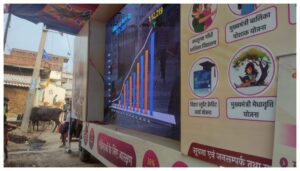
Across Bihar, thousands of women are stepping forward every day to speak openly about the changes they would like to see in their villages. Their voices are being documented on the spot and are helping shape future planning at different levels of governance.
In Purnea, Dooli Kumari shared, “There is no Anganwadi in our village. We have been asking for one for years. We finally got to say it publicly today.” She believes that such a centre could help children start learning early and create jobs for local women as Anganwadi workers.
In West Champaran, Munni Devi, now serving as a ward member, said, “Reservation allowed me to contest in local elections. Now I want that same chance for my daughters so they can study and be heard.” For her, the opportunity to serve her community came through policy and she hopes the next generation can build on that progress.
And in Supaul, Mahadevi Verma reflected on her experience becoming a Nyay Mitra, “The recruitment gave me a career path I did not expect. It is not just income; it is dignity too.”
The sessions held on Monday spanned districts such as Saharsa, Purnea, Supaul, West Champaran, Bhojpur, Munger, Lakhisarai, Araria and Jamui. Each event followed a consistent format: mobile vans fitted with LED screens screened short educational films about key government schemes, including the Balika Cycle Yojana, Satat Jeevikoparjan Yojana and Poshak Yojana. Leaflets summarising these schemes were distributed and women were invited to speak freely. Their concerns, suggestions and personal stories were recorded by officials present.
According to field teams, the feedback collected is being organised into three categories: local issues that can be acted upon quickly, matters that require departmental coordination and broader inputs that may inform future policy. This structure ensures that every voice heard during Mahila Samvad has a clear pathway for response.
Some of the most common topics raised on Monday included the need to repair village roads and drainage systems, the construction of Anganwadi centres and primary schools, setting up skill training centres and sewing units for women, increasing widow and old-age pensions, building community toilets and waste management systems and improving electricity and street lighting in rural areas.



